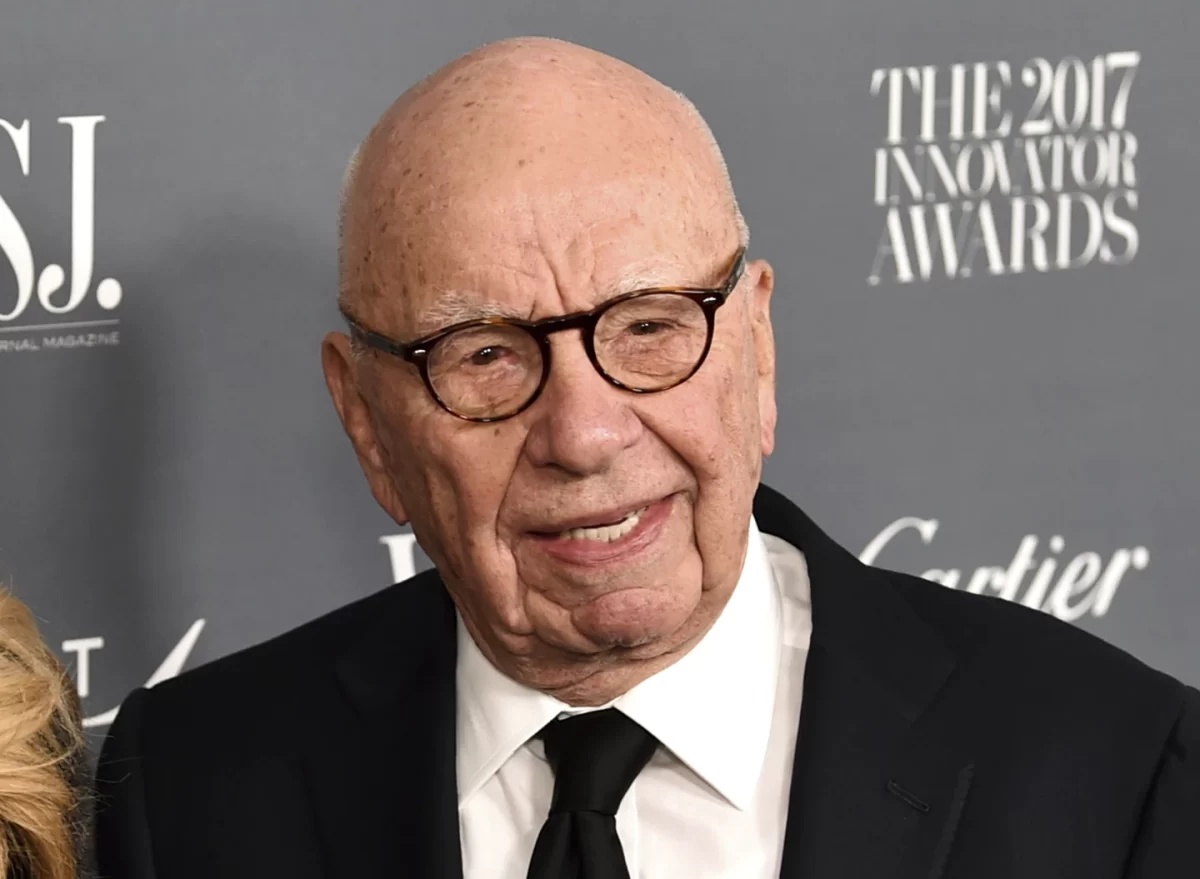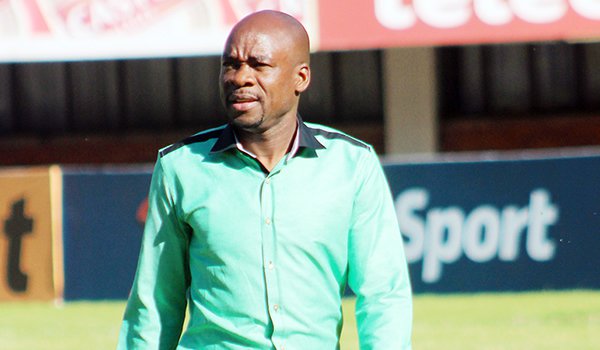NEW YORK, United States — Rupert Murdoch, the 92-year-old Australian media magnate whose creation of Fox News made him a force in American politics, is stepping down as leader of both Fox’s parent company and his News Corp. media holdings.
Fox said Thursday that Murdoch would become chairman emeritus of both companies, effective at board meetings in November. His son, Lachlan, will become News Corp. chairman and continue as chief executive officer of Fox Corp.
Lachlan Murdoch said that “we are grateful that he will serve as chairman emeritus and know he will continue to provide valued counsel to both companies.”
Besides Fox News, Murdoch started the Fox broadcast network, the first to successfully challenge the Big Three of ABC, CBS and NBC, with shows like “The Simpsons.” He is owner of The Wall Street Journal and the New York Post.
He slimmed down his corporate holdings with the 2019 sale of many entertainment assets to the Walt Disney Co. These included film production, rights to the Marvel comics, National Geographic and the cable network FX.
Fox News Channel has profoundly influenced television and the nation’s politics since its start in 1996, making Murdoch a hero to some and pariah to others. The 24-hour network converted the power and energy of political talk radio to television. Within six years, it outrated CNN and MSNBC.
In the United Kingdom alone, he poured millions of pounds into his newspapers – The Times, The Sunday Times, The Sun and the News of the World – and his Sky satellite television network.
Murdoch twice transformed Britain’s media landscape, first by breaking the dominance of the print unions in the mid-1980s and then by developing hugely successful multi-channel pay TV.
It has been a rough year for Fox, which was forced to pay $787 million to settle a defamation lawsuit related to its coverage of false claims following the 2020 presidential election. Shortly after, Fox fired its most popular personality, Tucker Carlson.
Stock in Fox Corp., while positive this year, began to decline early in 2022, due in part to lawsuits and also investor anxiety over the loss of viewers to smaller media outlets.
Murdoch vowed in a letter to employees that he would remain engaged at Fox.
“In my new role, I can guarantee you that I will be involved every day in the contest of ideas,” Murdoch wrote. “Our companies are communities, and I will be an active member of our community. I will be watching our broadcasts with a critical eye, reading our newspapers and websites and books with much interest.”
There was no immediate word on why Murdoch’s announcement came now. Ironically, it is the week author and Murdoch biographer Michael Wolff is publishing a book, “The End of Fox News,” speculating on what will happen to the network when the patriarch is gone.
Murdoch and his family, particularly children James, Lachlan, Elisabeth and Prudence, were said to be the model of the HBO show “ Succession.”
He built his empire from a single newspaper in Adelaide, Australia, inherited from his father and became a multi-billionaire. Forbes estimated the Murdoch family’s net worth at roughly US$19 billion in 2020.
While Murdoch never ran for political office, politicians in the United States and Britain anxiously sought his approval. He had a complicated relationship with Donald Trump. Wolff reported in 2018 that Murdoch had called Trump an “idiot,” adding an expletive for emphasis, but Fox News is built with an audience that largely admires Trump.
After Fox briefly seemed to tout the candidacy of Florida Gov. Ron DeSantis in the current election cycle, that has faded along with DeSantis’ prospects.
Fox News went through a series of sexual harassment scandals in the 2010s, which led to top executive Roger Ailes and prime-time personality Bill O’Reilly being pushed out. He dismissed them as isolated instances that were “largely political because we’re conservative.”
Ink flowed through Keith Rupert Murdoch’s veins from an early age.
He was born in Melbourne, Australia, on March 11, 1931, to leading Australian newspaper proprietor Sir Keith Murdoch.
Murdoch was educated at Geelong Grammar, one of Australia’s most prestigious private schools, and Oxford University’s Worcester College, before working as a reporter and sub-editor on the Daily Express in London.
He returned to Australia when his father died in 1952, leaving him the Adelaide News and Sunday Mail.
The tireless entrepreneur used the two titles as a springboard, building up their circulation and profits so he could buy up other papers, start new ones and move into TV and radio.
By the time he was 33, he had established Australia’s first national newspaper, The Australian, and owned other titles including the Daily Mirror and Sunday Mirror in Sydney, the Sunday Truth in Brisbane, the Sunday Times in Perth and the News in Darwin.
He was also chairman of the Southern Television Corporation and owned two radio stations.
Murdoch’s first foray into the competitive British media scene came in 1969 after he was asked to help fight off Robert Maxwell’s bid for control of the UK’s top-selling paper, the News of the World.
This endeavour was successful and Murdoch ended up owning 40 percent of shares in the Sunday tabloid. He soon bought up another 11 percent to become the controlling shareholder.
Later that year he bought The Sun, which was then dying on its feet, for the giveaway price of £250,000.
With his acute commercial acumen, and generous dollops of humour, sex and sport, Murdoch transformed the ailing paper into one of the most popular and profitable tabloids in history.
The Sun rapidly put on sales and, under the editorship of Kelvin MacKenzie, from 1981 to 1994, it became the most talked-about paper in Britain.
Its headlines became famous, from the self-explanatory “Freddie Starr Ate My Hamster” to “Gotcha”, when the Argentine cruiser Belgrano was torpedoed during the Falklands War, and “It’s Paddy Pantsdown”, a reference to former Liberal Democrat leader Paddy Ashdown’s extramarital affair.
Murdoch acquired a slice of the British establishment when he bought The Times and The Sunday Times in 1981. He added the now-defunct Today newspaper to his growing empire in 1987.
In 1989 the entrepreneur launched Sky satellite TV, then offering just four channels, which merged with the rival British Satellite Broadcasting the next year to form BSkyB.
BSkyB proved a huge success, expanding to offer hundreds of channels and making large profits from subscribers drawn by popular offerings such as exclusive live Premier League football matches.
Murdoch first entered the US media market in 1973 with the purchase of two papers in San Antonio, Texas.
His American ventures went on to include a new weekly tabloid, the National Star, as well as the New York Post, the Chicago Sun-Times, Village Voice and New York magazine.
Having taken US citizenship in 1985 to comply with the country’s media ownership laws, he built Fox TV into one of America’s major broadcast networks.
His media interests spread beyond the English-speaking world, growing to include Sky Italia, Sky Deutschland and Asia’s Star TV.
Murdoch was a hands-on proprietor, frequently telling his editors how their papers should be organised and laid out.
He admitted to a British parliamentary inquiry in 2007 that he exercised editorial control at The Sun and the News of the World over “major issues” – such as who to back in a general election and policy on Europe – but insisted he never interfered with the lines taken by The Times and The Sunday Times.
Murdoch also became famed for his plain-speaking defence of the way he ran his businesses.
When he was accused of lowering newspaper standards, he said he was reviving the newspaper-reading habit among millions of working-class people who had abandoned papers for TV.
Shares of News Corp. and Fox rose Thursday in early trading. – AP















